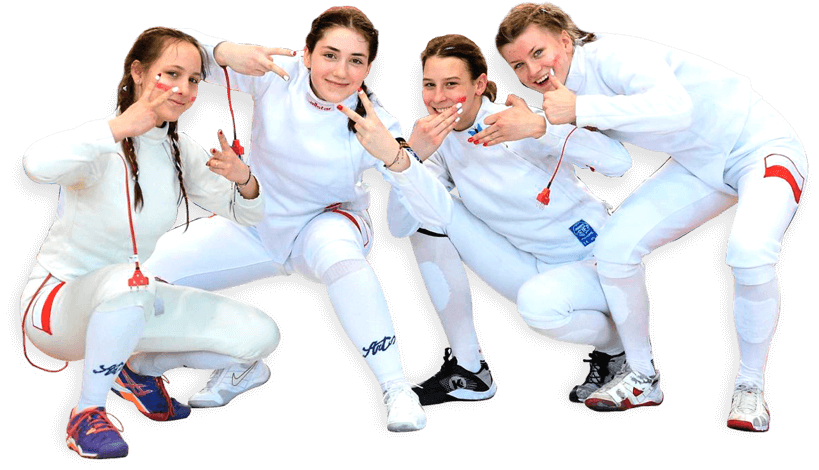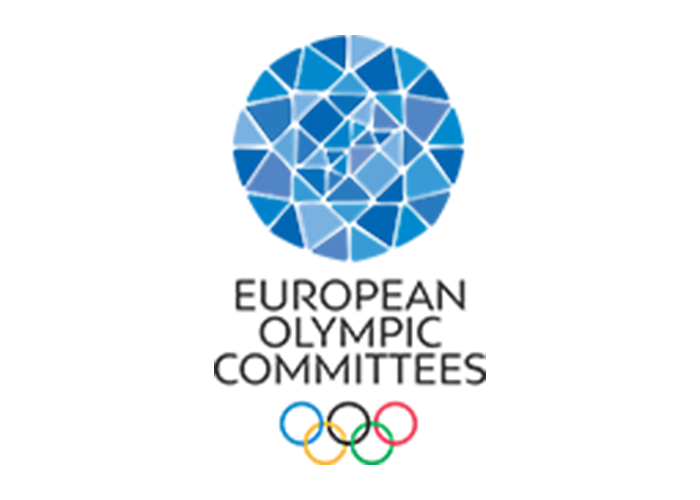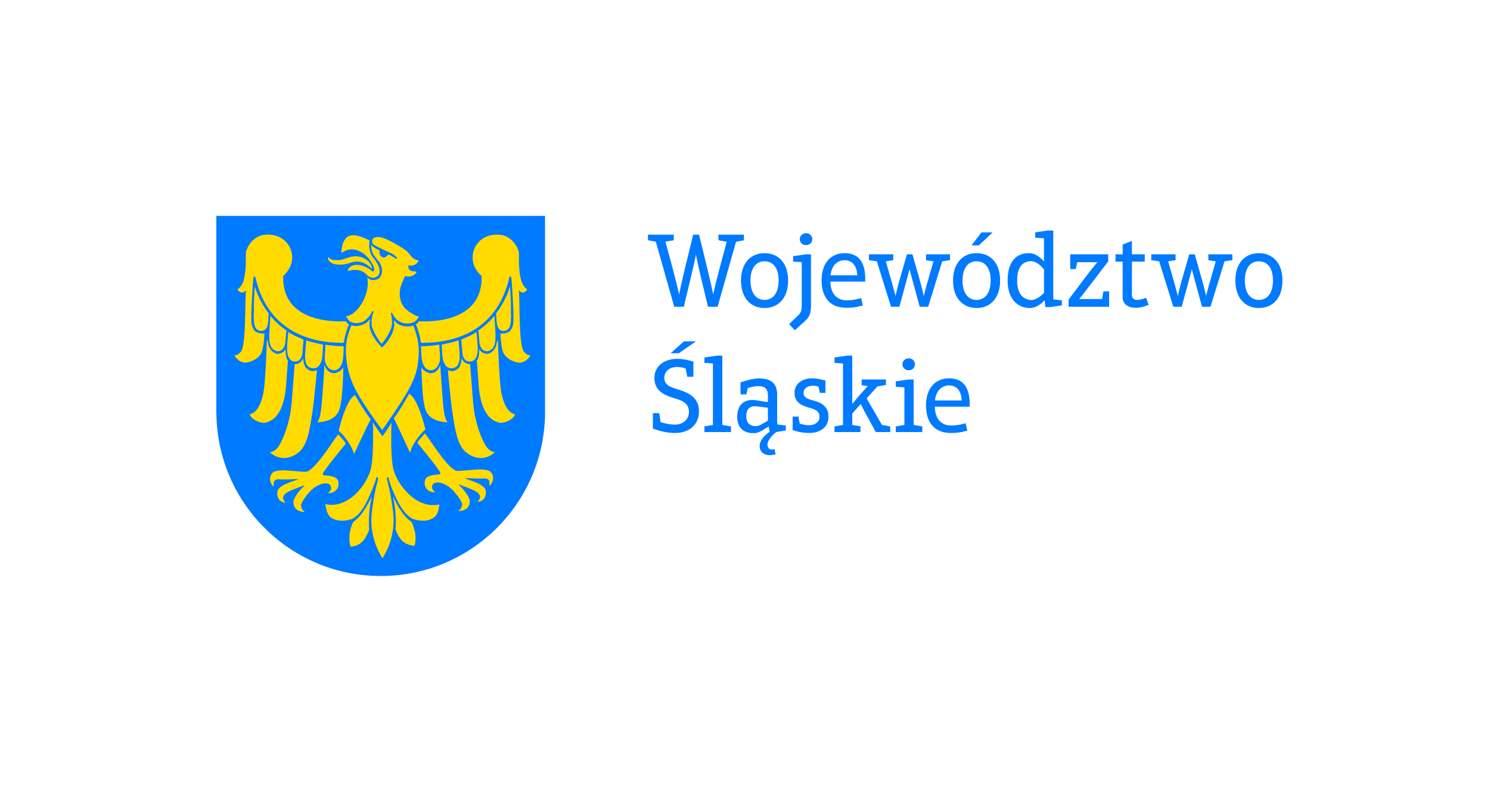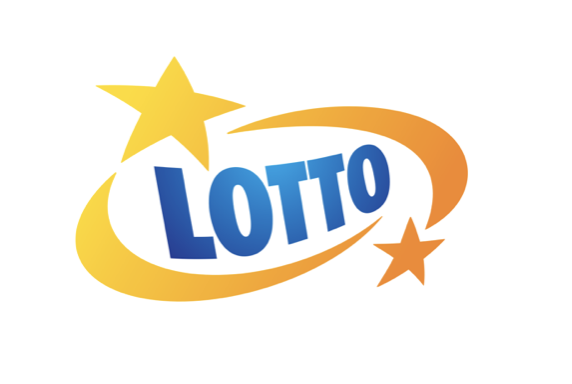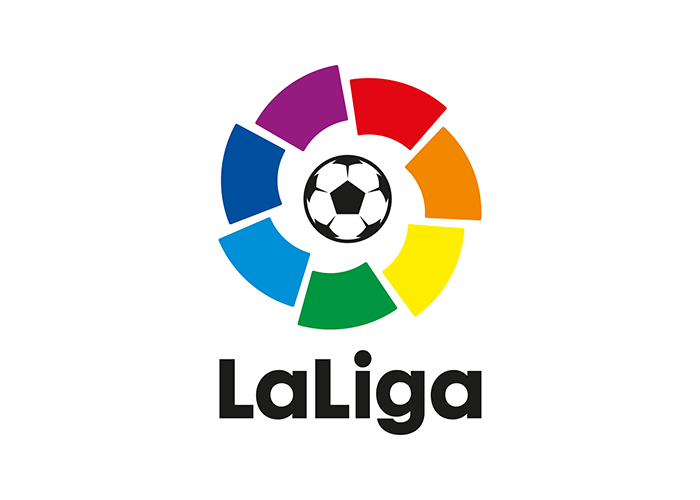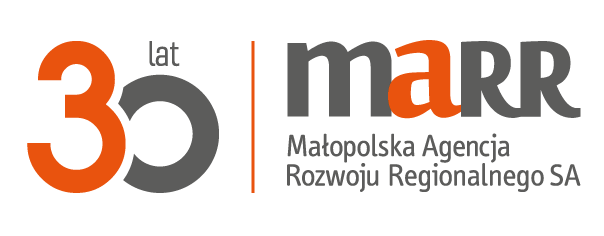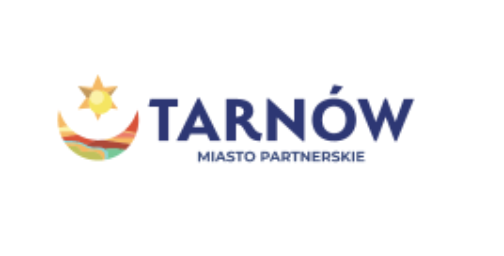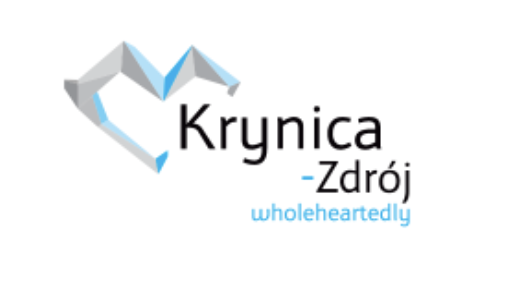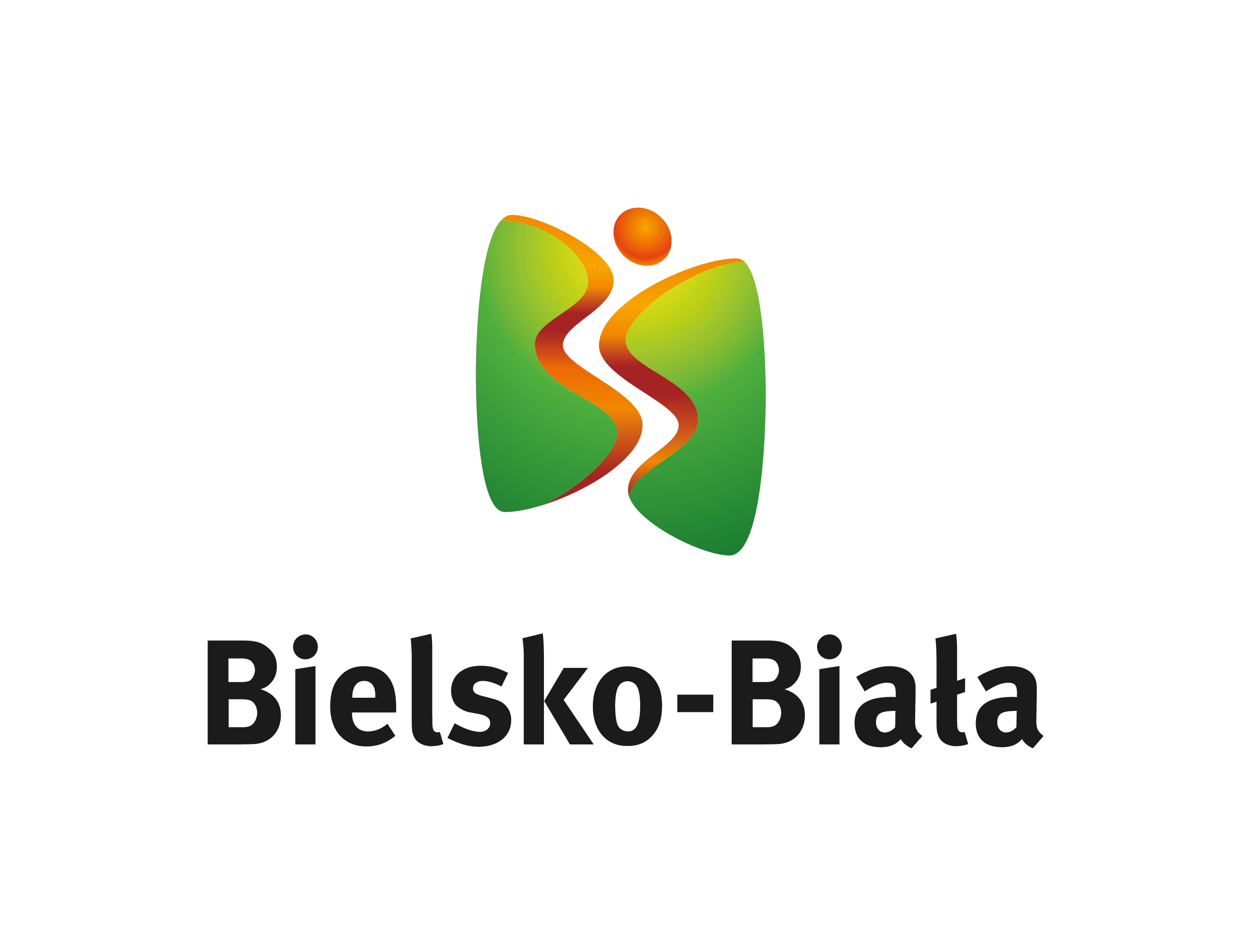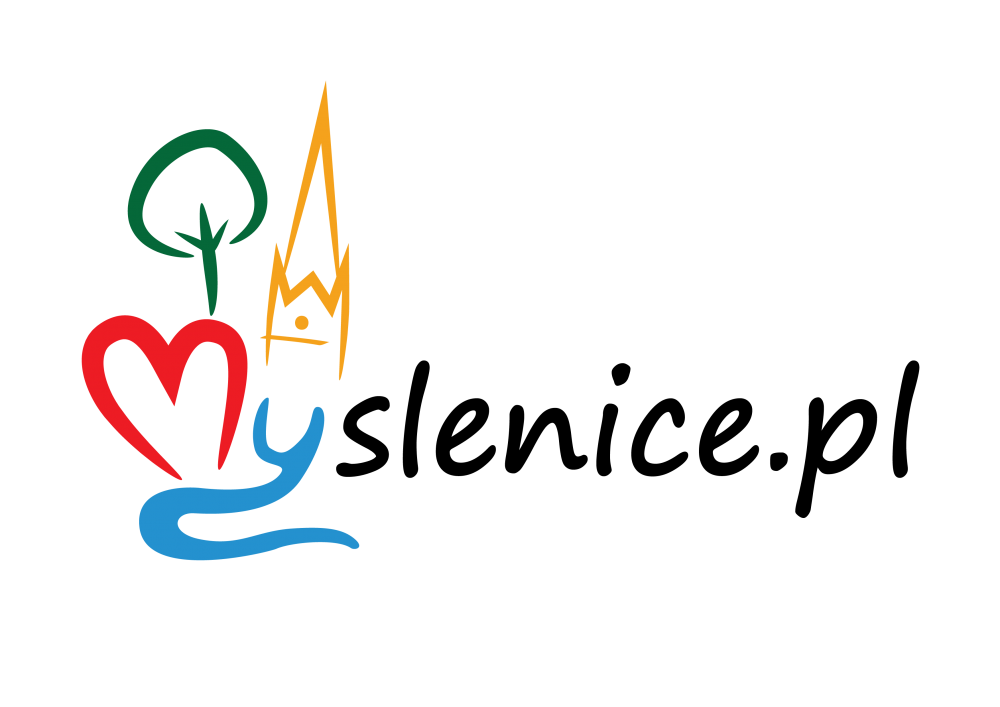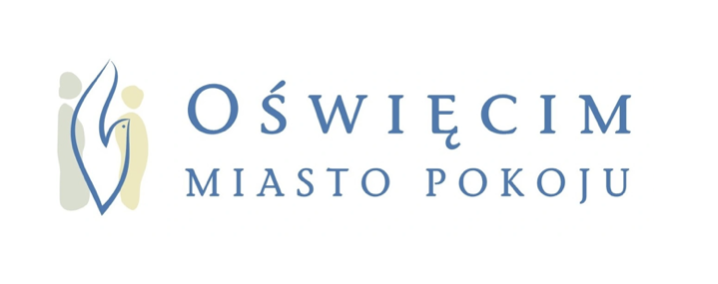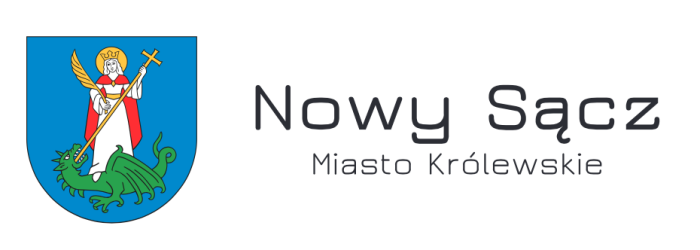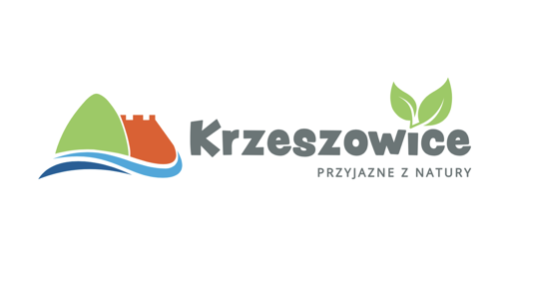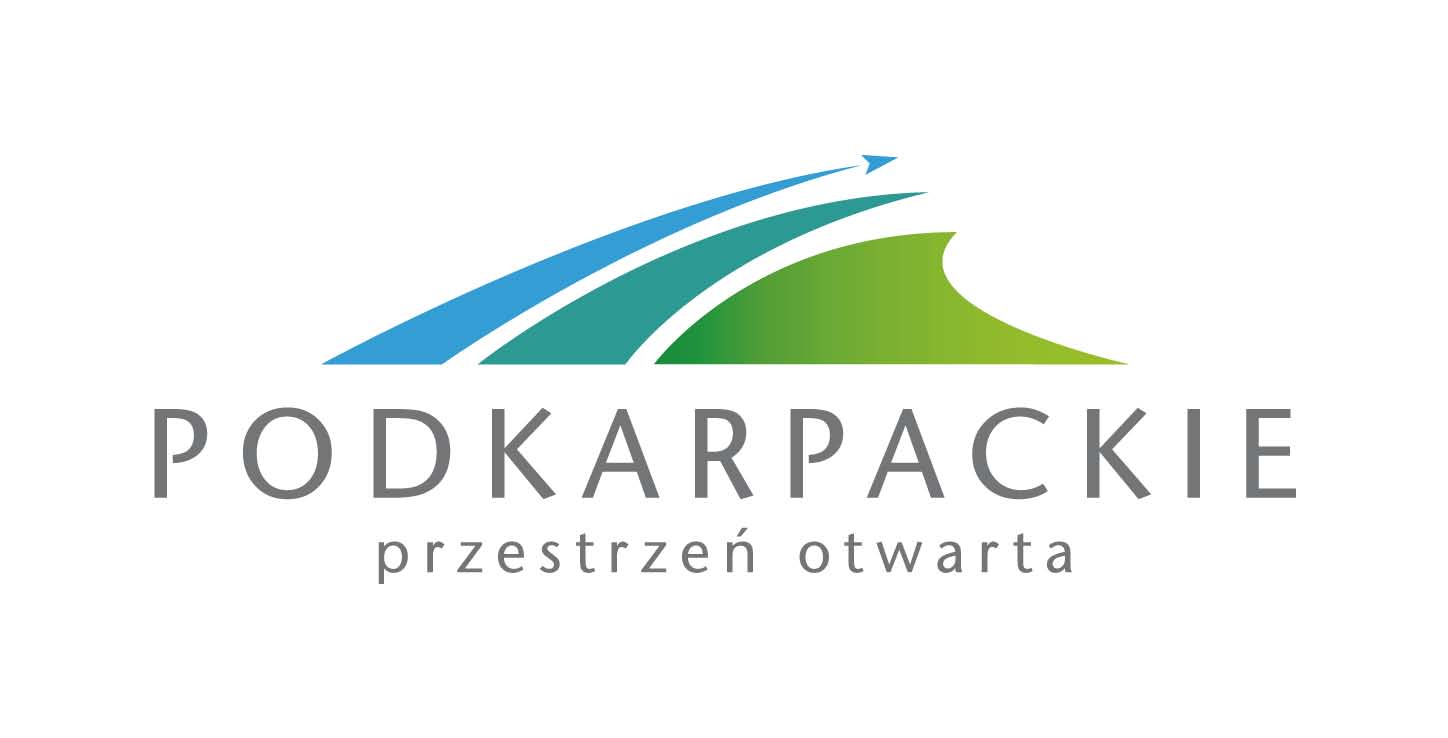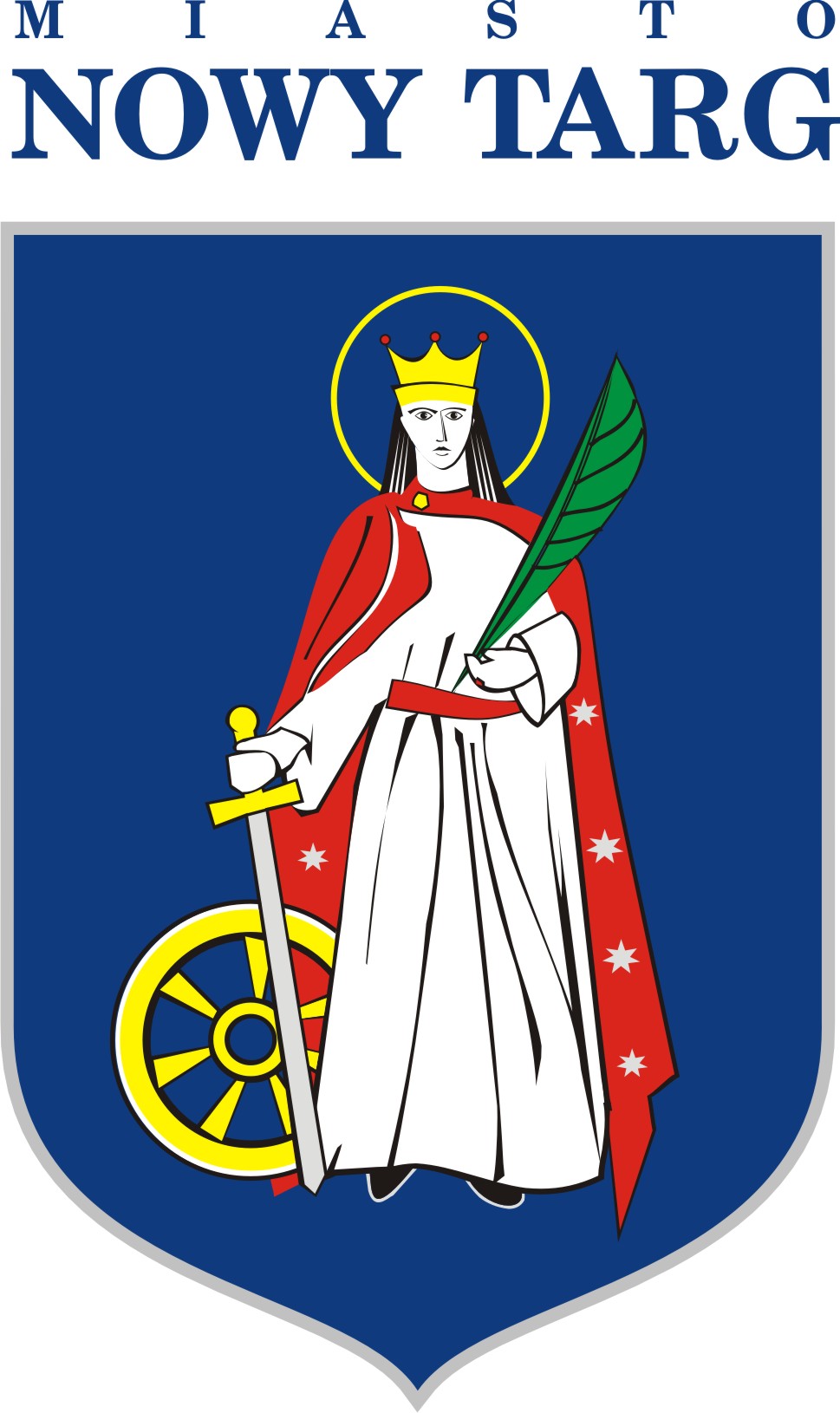Teqball/Non-olympic sport disciplineEVENTS
- Men's Singles
- Men's Doubles
- Women's Singles
- Women's Doubles
- Mixed Doubles
Teqball - between football and table tennis
The thrill on the Main Square in Kraków
Teqball is winning the hearts of the fans of unusual sports, and is able to arouse a lot of positive emotions. Therefore, it is worth getting to know it – the presence of the best players from all over Europe and the format of the Games will certainly provide every fan with an unforgettable experience!
The teqball tournament, to be held during the European Games in the rank of European Championships, will gather 72 players. The games will begin on June 28, and end on July 1 on the Main Square in Kraków – the rivalry in five spectacular categories will be admired in the stands by 720 fans. Can you dream of a more beautiful setting for the greatest sports emotions?

Between football and ping-pong – rules and specifics of the game
The basis of teqball is a distinguished, specially shaped table, on which the game is played. It is a kind of combination of football and table tennis, and the specifics involve bouncing the ball between players. Teqball can be played by both men and women, regardless of age. Teqball games are played in singles, doubles and mixed doubles (mix) format.
The game is played until two sets are won (up to 12 points scored). Teqball offers freedom of ball selection, but the preferred size is “5”. Despite what it seems, the official rules are quite demanding and force players to maximize concentration during the game:
● Not touching the ball more than three times, return it to the opponent’s half.
● It is against the rules to touch the table or any part of it
● It is not allowed to bounce the ball twice in a row with the same part of the body
● The ball may not be played into the opponent’s half using the same body part more than twice
Teqball is a non-contact sport, which means that the risk of injury is extremely low. The special rounding of the table forces players to control the ball every 2-3 seconds, so a large number of touches can be achieved in a relatively short period of time. Teqball guarantees a high spectacularity of the game, forcing players to be as well prepared as possible in many aspects:
● Ball control – teqball helps improve ball control technique by forcing short pauses between each bounce during the game. The need to move quickly means players have less time to react and make decisions.
● Body control – players are forced to control their balance and coordination during intense game. Good signs of body control can include synchronized steps, a low center of gravity and proper running style.
● Spatial awareness – teqball refines spatial awareness, which helps players focus on what’s happening around the table and how it might affect his next moves.
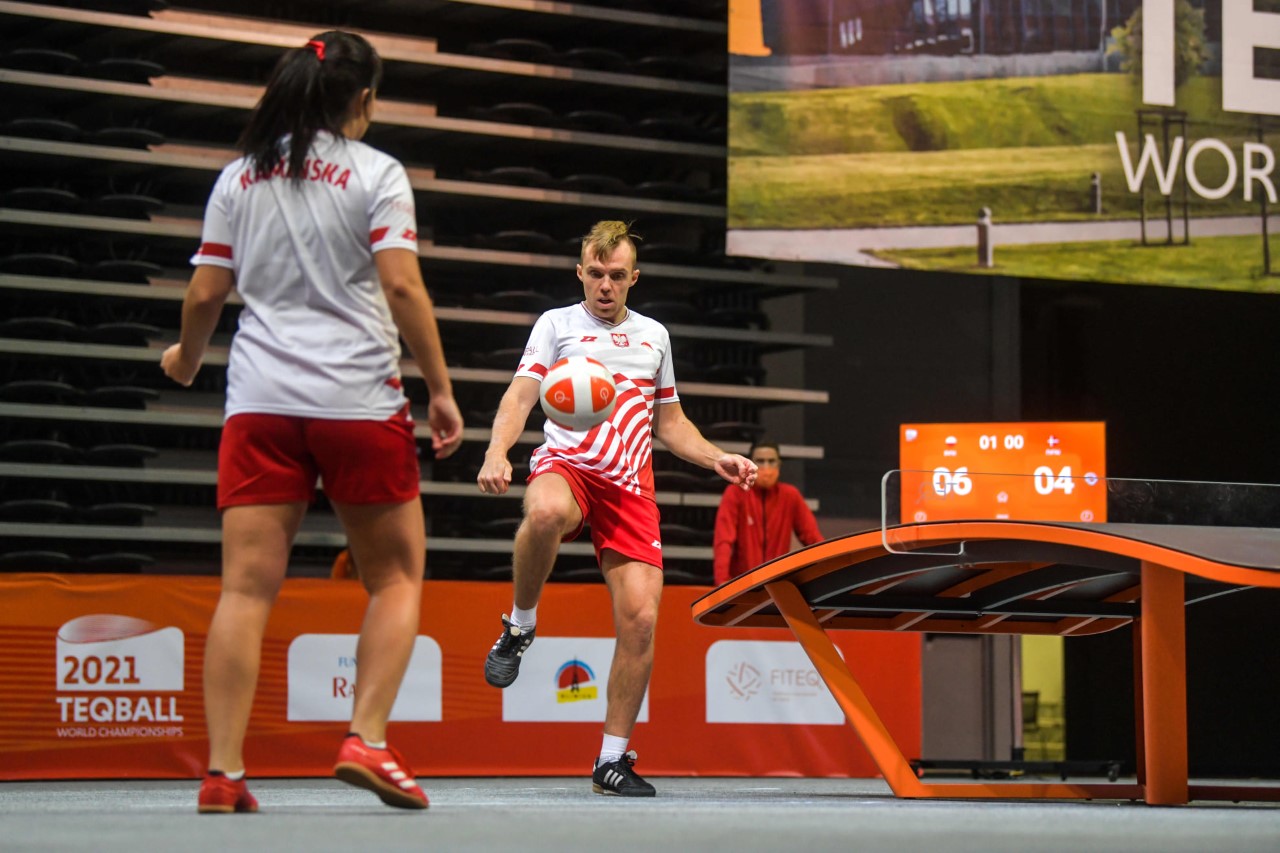
Poland – a forerunner in teqball development
The country that has led the way and set the tone for the development of teqball is undoubtedly Poland – dozens of players practicing the sport, medals of major events won by our players and the organisation of tournaments of the highest rank are the key evidence of our position in the world of the sport.
It is also worth mentioning that the variant of five categories (i.e. Women’s and Men’s Singles, Women’s and Men’s Doubles and Mixed Doubles) was proposed for the first time in the history of the discipline on the initiative of Tomasz Zabielski, a leading promoter of teqball in Poland, during the international tournament in Ząbki, which was organised in May 2021. Until then, players have competed without dividing categories for men and women – the separation of categories was an extremely important step in the evolution of the discipline.
Teqball made its first appearance in Kraków in 2020 on the occasion of the Polish Championships organised at the WKS Wawel sports hall. In December 2021, Poland was the organiser of the Teqball World Championships, which took place at the Arena Gliwice – the event itself was a great success, and two medals were won by our representatives: bronze by Adrian Duszak (Men’s Singles) and silver by Paulina Łężak (Women’s Singles).
Many Kraków residents also remember the September Teqball World Series tournament, which featured the best players from around the world, including the undisputed legends of the discipline: Adam Blazsovics (Hungary), Apor Gyorgydeak (Romania), Bogdan Marojevic (Serbia) or Rafaella Fontes and Natalia Guitler (Brazil). The event can boldly be compared to the rank of the Teqball Champions League. The finals were played on the Small Market Square – so it was a perfect preview of next year’s thrill that awaits the city of Kraków during the European Games. The ambassadors of the two events in Poland were Lukas Podolski (World Championships in Gliwice) and Lukasz Piszczek (Teqball World Series in Kraków), which shows how positively the discipline is received among professional footballers.
Teqball in Poland also has excellent prospects for further development. Each club in the country’s PKO Ekstraklasa received its own personalized table during a campaign held in June/July 2022. The tables are intended to serve not only as a training tool for players competing in the top division on a daily basis, but also for the youngest adepts. In addition, it is worth mentioning that every year several thousand children learn about the discipline thantks to projects organised by the Ekstraklasa Foundation – Ekstra Class Academies and Ekstra Talent, where animators explain the rules of the discipline and conduct joint training sessions.
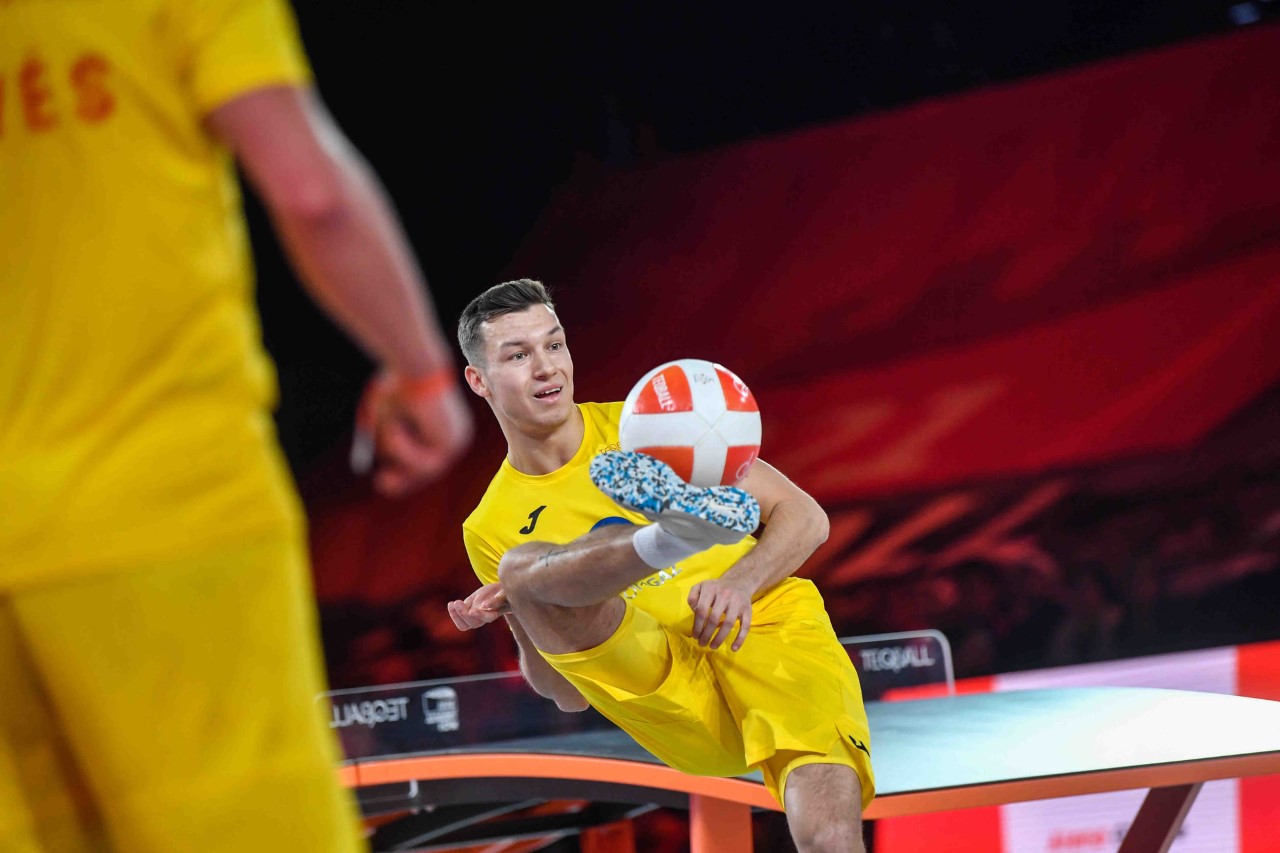
From the Hungarian backyard to the European Games – the history of the discipline
This spectacular sports hybrid, although very young, has rapidly become one of the fastest-growing sports in the world. The spectacular game during the European Games Kraków-Małopolska 2023 fans will be able to follow in an unusual setting, among the historical buildings, on the Main Square in Kraków.
Fans of the sport often call it “the purest form of football”. This is because the complete lack of physical contact between players eliminates fouls and allows them to focus on technique, strategy and game dynamics. Teqball is appreciated both by professional footballers, who can practice their technique at an unusual table resembling the one for table tennis, and amateurs looking for a new sporting experience. Its popularity around the world is constantly growing, and after the upcoming Olympics the discipline is sure to gain millions of new fans.
The discipline itself has its origins in 2014. It was created by two soccer enthusiasts from Hungary, Gábor Borsányi and Viktor Huszár. In time, the duo was joined by thriving businessman Gyorgy Gattyan, without whom the rapid development of the discipline would not have been possible. The sport was officially introduced for the first time in October 2016 in Budapest, by one of the sport’s leading global ambassadors, Brazilian soccer player Ronaldinho.
In 2017, the International Teqball Federation, FITEQ (Federation Internationale de Teqball), was established, bringing together and assisting professional athletes and amateurs around the world. The first official world Championships were held that same year in Budapest. The tournament was attended by 20 teams from around the world, including Poland.
One of the crucial moments in the development of the discipline was the creation in 2018 by FITEQ and Peace and Sport of an agreement to promote teqball as a tool for social development and equality in developing countries. Since then, the two organizations have led a project to promote teqball in a camp for Syrian refugees in Zaatari, Jordan – coaching children, establishing an official team and training coaches to ensure the initiative would go much further.
Another milestone in the sport’s development was the approval of the 45-member Olympic Council of Asia (OCA) to include teqball among its official sports, thus paving the way for the discipline to compete at the 2022 Asian Games. Perhaps after the 2023 Kraków-Małopolska European Games, the sport will also be present at the Olympic Games. The world federation also cooperates with organizations such as TAFISA (The Association For International Sport for All), GAISF (Global Association of International Sports Federations) and WADA (World Anti-Doping Agency).
Teqball is played in almost every corner of the world. The table itself is also used by the major clubs and soccer organisations, as an ideal training tool that helps players develop their technical skills. Players from Arsenal London, Chelsea, FC Barcelona, Paris Saint-Germain and the soccer associations of Belgium, Brazil or Croatia use teqball elements. The ambassadors of teqball in the world are many of the famous football players, such as Ronaldinho, Carles Puyol, William Gallas, as well as Luis Figo or Robert Pires.
Every year, the International Teqball Federation (FITEQ) organises events of World Championships and continues to develop cyclical competition formats dedicated to top players. The European Teqball Tour or Teqball World Series are spectacles that match the level of the most media-oriented sports events. Tournaments held in Paris, Los Angeles, or at this year’s tournament in Kraków, gathered crowds of fans, who encouraged by the originality of this sport, could experience the incredible sporting thrill.
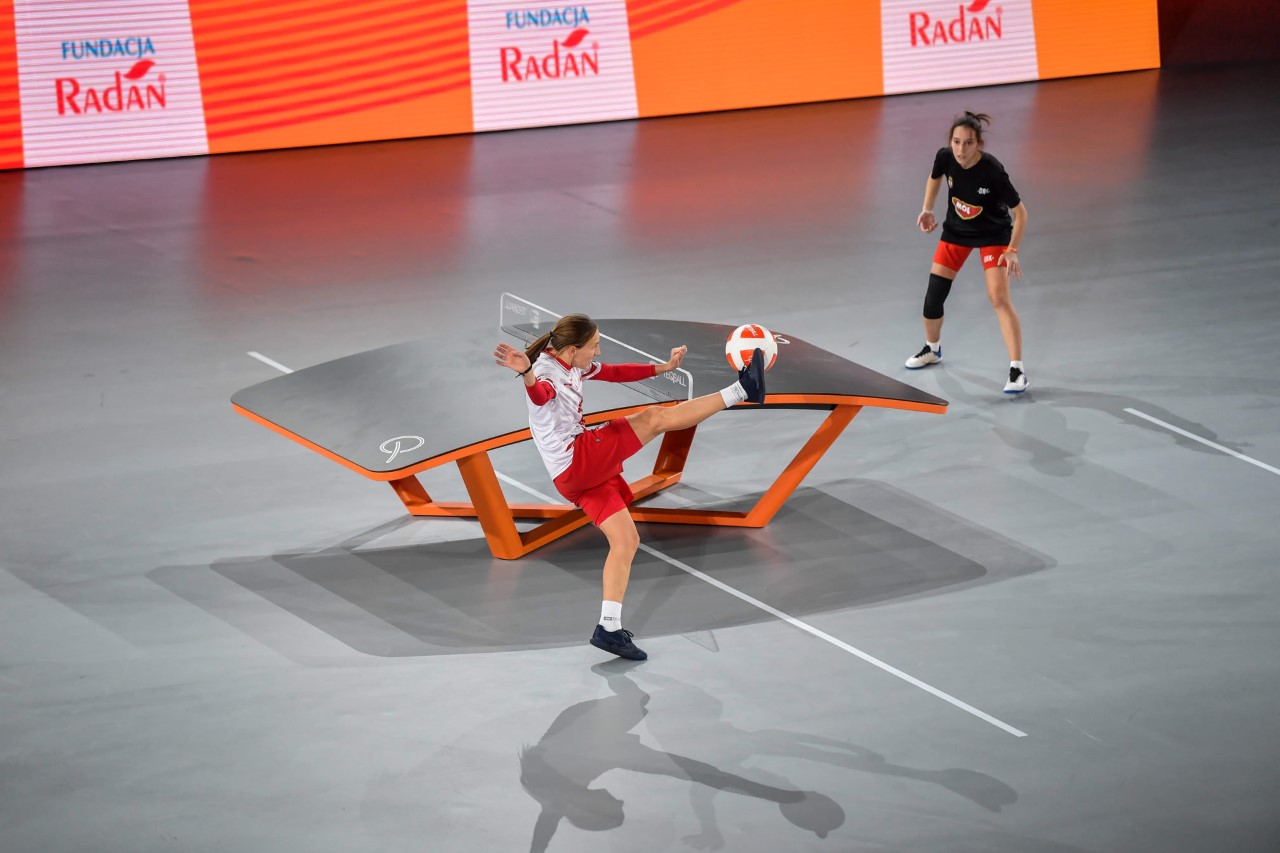
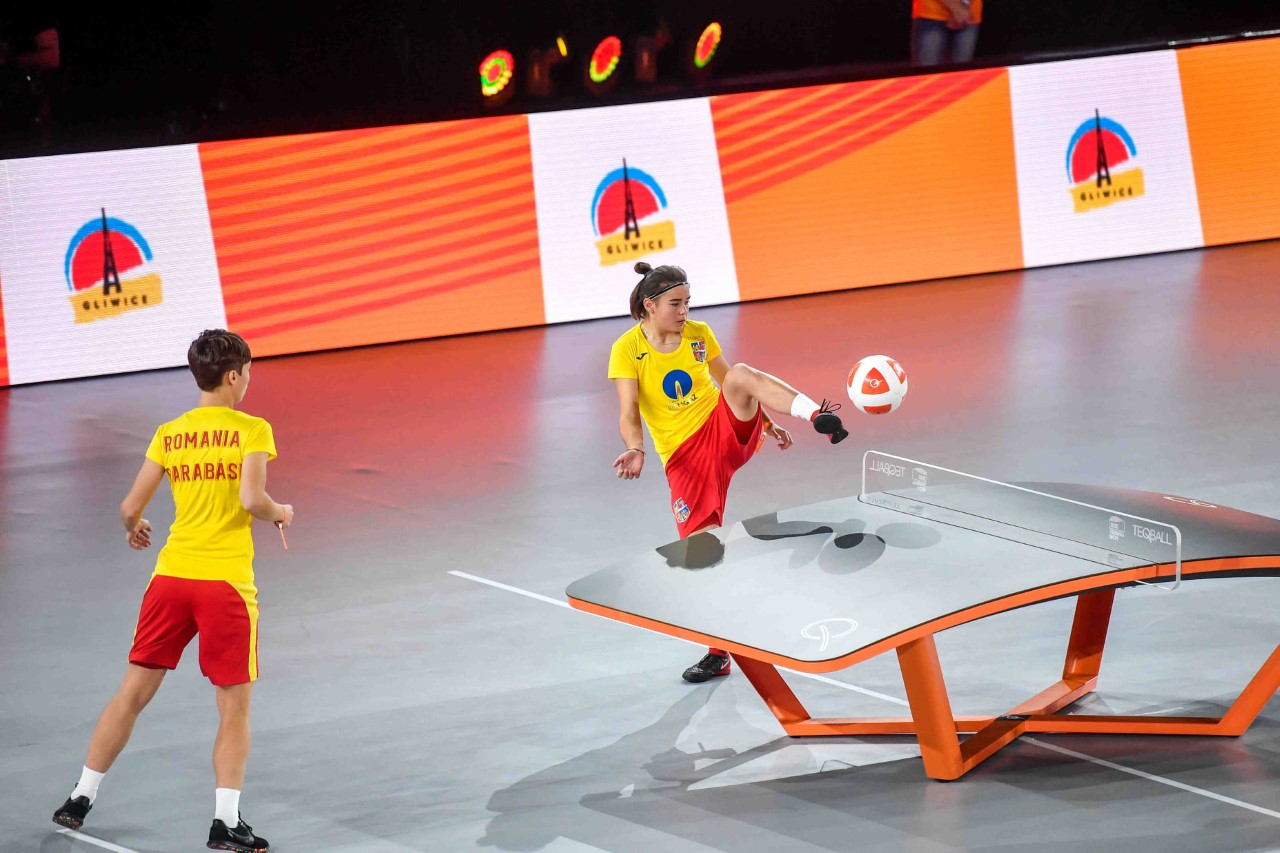
Teqball VENUE


